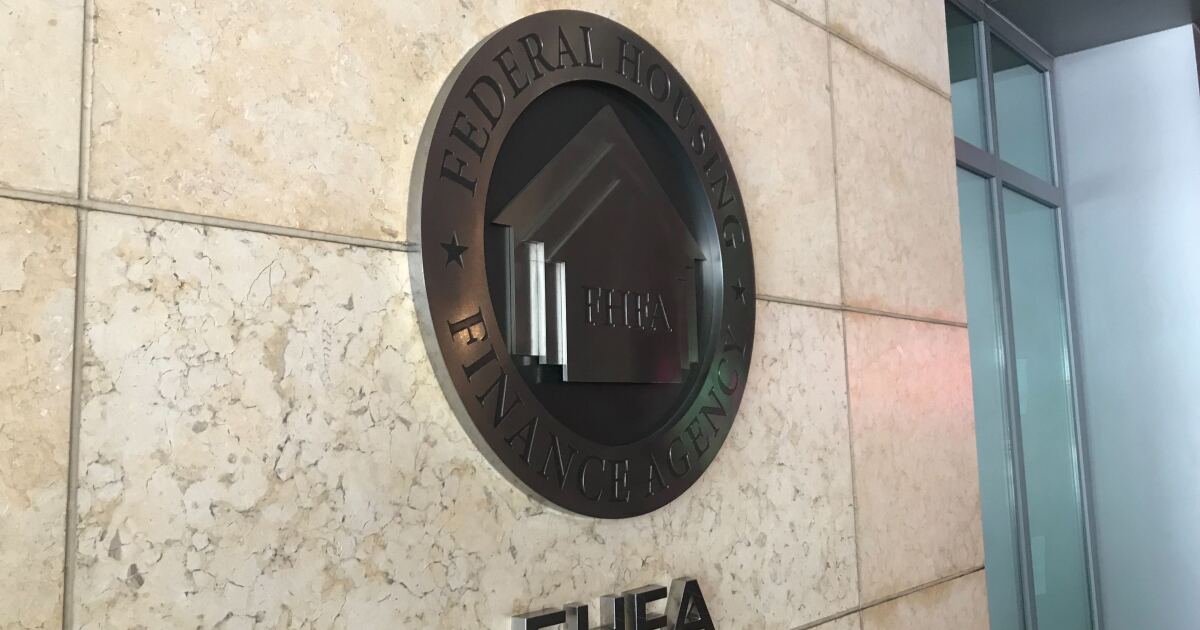
Silvio Tavares waited years for news that finally arrived in July: government-sponsored enterprises Fannie Mae and Freddie Mac would finally allow lenders to use something other than a FICO score to determine whether a customer is credit-worthy enough to buy a home.
The wonky policy change, delivered via a social media post after years of debate, serves as a long-awaited government stamp of approval for Tavares's company, VantageScore Solutions LLC, the only major competitor to credit-scoring firm Fair Isaac Corp. Shares of that company, better known as FICO, plunged at the time of the news and are now down 17% since then.
Many lenders rely on Fannie Mae and Freddie Mac to buy the mortgages they issue, but the U.S. government's Federal Housing Finance Agency previously wouldn't let Fannie and Freddie buy home loans unless the original lender relied on a FICO score to determine a borrower's creditworthiness — even if the lender thought that VantageScore was the better indicator.
FHFA's announcement allowing for lender choice is placing pressure on FICO shares, with investors increasingly concerned about the Bozeman, Montana-based company losing both pricing power and a competitive edge against VantageScore even if the actual change could be months off.
Founded in 2006 by credit-reporting firms Equifax, Experian and TransUnion, VantageScore has long tried to make inroads as an alternative to FICO — with some success. Financial-technology companies hungry for as much consumer data as possible to make their lending decisions warmed to the firm, and some banks, including JPMorgan Chase & Co., display their customers' VantageScore for free on their mobile apps.
But the major conforming mortgage market remained elusive until the FHFA's decision.
"It's a huge win for competition," Tavares, chief executive officer of South San Francisco-based VantageScore, said in an interview.
But FICO's CEO, Will Lansing, said there are "a lot of things" that stand between where the industry is today and broader adoption of VantageScore models.
"We welcome the competition, but it's competition like we've had in every other market," Lansing said in an interview.
FHFA's most recent announcement follows the agency's initial validation and approval in 2022 of VantageScore's model in addition to FICO's framework for use by Fannie and Freddie. But the implementation wasn't immediate. Nearly three years later and after much public input on the updated credit-score requirements, FHFA Director Bill Pulte announced the lender's choice approach through a post on X in July.
The decision, however, doesn't address the lingering technical issues: Fannie and Freddie can't actually accept VantageScore just yet, and neither entity has disclosed when it will be accepted. A frequently asked questions page published by the FHFA said Fannie and Freddie "are completing the final steps for delivery of loans scored using VantageScore 4.0. The Enterprises will keep sellers/servicers and other market participants apprised of next steps."
"We are moving quickly to implement the Credit Score Competition Act of 2018 signed by President Trump and protect Americans from monopolies," an FHFA spokesperson said in an emailed statement. "We're allowing people to count rent toward their mortgage, via VantageScore, and doing so in a safe and sound manner."
Vishal Garg, CEO of online mortgage lender Better.com, said he's "psyched" to see Fannie and Freddie accepting VantageScore, but can't move forward just yet.
"The technological systems are bottlenecked," he said. "It basically makes the entire process a non-starter."
Concerns also still remain about VantageScore and its model. Chi Chi Wu, the director of consumer reporting and data advocacy at the National Consumer Law Center, said she would support VantageScore if it were an independent company. Her group has opposed lender choice and warned that the rise of VantageScore would allow the same three companies to control both credit reporting and credit scoring, and potentially allow them to push the more-independent FICO out of the market.
"If there's no FICO, it's only the big three credit bureaus and the scoring model they control," she said.
For VantageScore, the biggest hurdle to broader adoption is largely brand recognition. While the company touts that it scores more people than FICO, the reliability of its scoring mechanism remains to be seen — by the mortgage-backed securities market most importantly, said Wells Fargo & Co. analyst Jason Haas. The well-known FICO score has a history that VantageScore doesn't.
"People really like the FICO score because they've seen how it's performed, particularly through the Great Financial Crisis. They can see it in their risk models," Haas said. "And with VantageScore, it's just newer. Eventually people could become familiar with it, but it's just going to take a long time."



